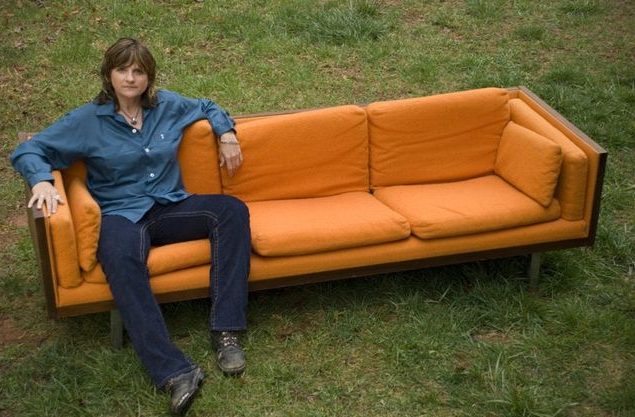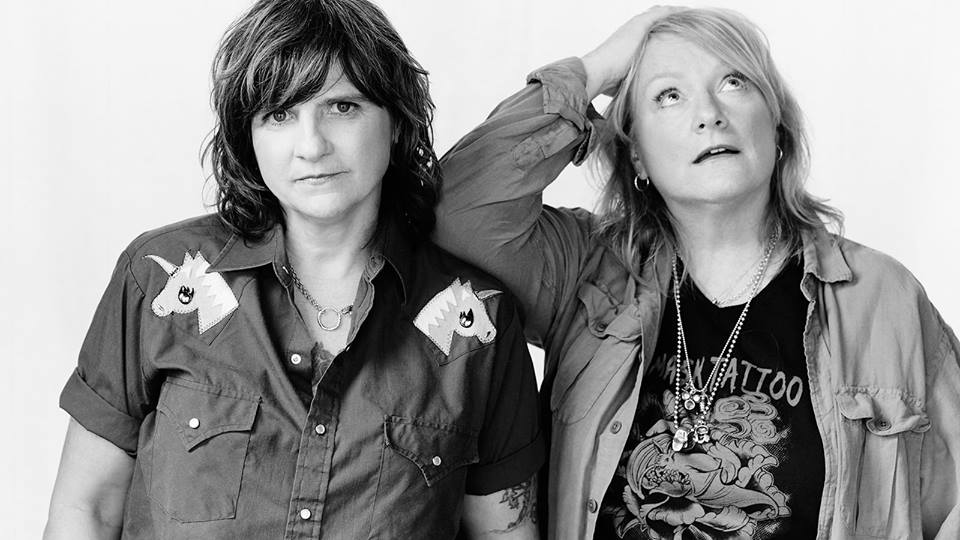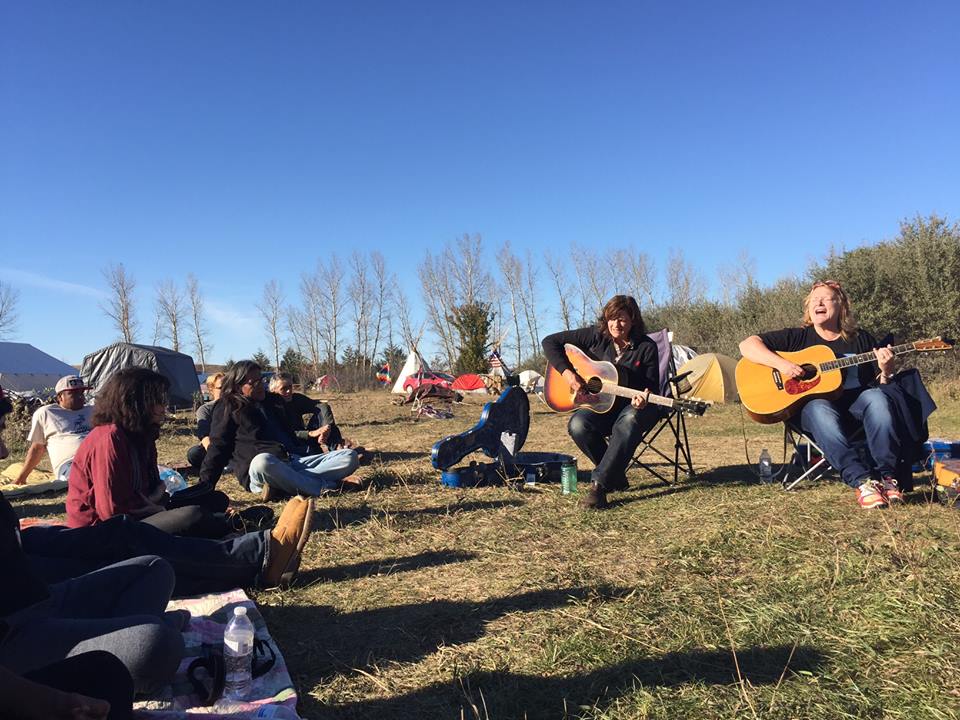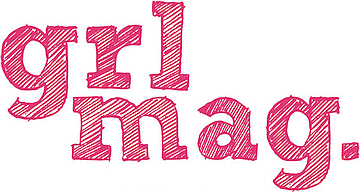
I had the chance to talk with musician, songwriter, and activist, Amy Ray. Ray is one half of the folk duo, The Indigo Girls, which is made up of herself and Emily Saliers. We talked music (of course!), politics, activism, and of some of her favorite artists and records! Check it out and let her words of wisdom inspire you to go into the world and make some music and create some change for the better!
J: Thank you so much for taking the time to interview with me! So to start this off, how did the Indigo Girls get started?

A: We got started in highschool, I was fifteen and Emily [Saliers] was sixteen. We just started playing guitar and singing on our own. Both of us were in families that were musical, and I think we were in a school chorus program and became friends through that. We decided to start playing some tunes together, and there was a talent show that we were going to do, that was sort of the first thing. Although, we didn’t end up doing it [laughs], but that was the reason why we got together. Then we started playing local sandwich shops and a bar.
J: Oh, how old were you at that time?
A: We were still underage, but our parents went and met with the manager and got permission for us to play at this place with an open mic night. We would go up there on Tuesdays, we had our drivers licenses so we could drive up there and play the open mic. We could play for our friends and play in our classrooms. That’s kind of how we got started.
J: Nice! And you guys have stuck with it, over thirty years now, right?
A: Yeah, [laughs], well over thirty years!
J: Definitely inspirational. So you got started with your music pretty young. There are lots of young girls out there who are starting out around the age you did. I’m curious if, being so young, shaped the way you view the music industry?
A: Probably, I mean, when we started it was really all about hanging out with our friends and playing music, we didn’t really think about the music industry, so, we had this kind of grounding force behind us. It was all about love and music and having a good time… it was pretty organic. Back in the 80s, the industry was so different. It had a lot of sexism and there definitely weren’t as many women in as many jobs in the industry. But, we didn’t really pay attention to that since we were so young, we thought it was fun. When we were in college, we started noticing that we were up against some stuff. It didn’t really matter because we had our friends and just really had a lot of support. We saw the industry change but we saw it from a strong perspective. It’s hard to have an organic beginning these days because there’s a different mechanism now for playing music.
J: Oh yeah, especially with social media, I feel like that makes an impact nowadays in music.
A: Yeah, it’s very impactful. It’s a good thing, but it could be a bad thing. too. It can be a tool in organizing your community and having really cool events in non-traditional places. If you can’t play in a bar yet, the internet is a good place to organize to play at an art gallery or something.
J: Yeah totally! Like DIY-culture!
A: Yeah!
J: So, you also have your own label, Daemon Records?
A: Yeah, I’ve had it since 1989. I started that label right when we got signed to a major label. Now it kind of functions as a way to put my own music out, but, initially, the sole purpose was to put other people’s music out. We have put about 60 records out through the labels, of others bands and stuff.
J: Oh, like who?
A: [Laughs] Well, they were pretty independent, just kind of South-Eastern bands. There was an artist named Danielle Howle, which we still tour with. A lot of punk music in the beginning, you know there were a lot of bands around that were just local and didn’t have a way to put their own music out so we did, we organized big shows with, like, ten bands playing in one day. We would do benefits for something or political events so it was kind of like an activist and music label.
J: That’s awesome. I think that’s such a necessary resource in the music community, to have and to thrive off of, especially for independent artists.
A: Definitely. But there was a point where a lot of the bands that we were working with could do their own stuff, that it became a question of how to make the label function to be useful to artists and not just take away from their own ability to do their own stuff so it was kind of two different DIY’s. There was the DIY of the music label and the DIY of the artists themselves. That’s where we are at still, it’s like, what can an artist do for themselves, completely independent of anyone, and what do they need for resources. There’s still a looming question for a lot of indie bands of how to make that work.
J: Yeah, definitely. Well, of behalf of all the independent musicians out here, thank you for that!
A: [Laughs].
J: I do know that you have a background in activism, like environmentalism and LGBTQ rights. Can you go into detail a bit about your work with that?

A: We sort of have your typical left-wing pallette [laughs]. We were community activists when we started, trying to raise money for local soup kitchens, and, at the time, the HIV epidemic had just gone full-blown so we were doing things for that too. We were doing environmental work with Greenpeace. In the early 90s we met a Native-American activist, named Winona LaDuke, who was a great thinker, strategist, and activist, and we teamed up with her and started an environmental organization called Honor the Earth, in which the sole purpose was to fund Native American environmental work and cultural sustainability work. The work we do affects everyone because it holds corporations accountable, it holds the government accountable, it talks about building coalitions with other people of color to create less disenfranchisement so that it’s not always a case where people in Flint, Michigan don’t have water, Indians in the West are having nuclear waste being
dumped onto their lands, or Standing Rock, where the pipeline is being built. That organization is still running and that has really guided us in our environmental work in the early 90s. We are currently doing a lot of work with Standing Rock. We have also done a lot of queer activism, mainly grassroots. We are more interested in working on the streets with queer people that are disenfranchised, even within the queer movement itself. We did a lot of voting stuff with the election this year, a lot of voting advocacy. I mean, it didn’t turn out the way that we wanted it to, but, I think we built some infrastructure that can help later.
J: I think that’s a good subject to touch on here, actually. It’s a very heated time right now, after the election. I have a lot of strong emotions going on, I’m sure everyone does. Do you have any advice that you would give to people who are having a hard time with this and may be a bit scared for the future?
A: [Laughs], Yeah, I mean I’m scared to, hah! I’m mostly scared because I feel much better when there’s more of an equality in Washington, more diverse voices, and people from both parties talking to each other. I think it takes people at problems from different angles and so I do believe in differing opinions. But I don’t think that the rhetoric of hate, misogyny, racism, and sexism is useful at all. But I don’t think you can ignore the racism in our country and I think we have to fight and make sure that we take the high roads. I really believe in Michelle Obama saying, “When they go low, we go high,” …I really believe that’s still the case. We need to build bridges, we need to support immigrants, we need to reach out to communities that feel even more alienated now, and do our best to help make people feel welcome in the country. We can also reach out to people who feel differently than we do, and ask them “Why?” to try to understand where they are coming from. Create some kind of dialogue, instead of divisiveness. That’s my feeling. I’m not against the protests, all that stuff is so important. We are going to the march in Washington the day after the inauguration, Emily and I, with our families. We are trying to get people there. For me, when I feel scared about what is going to happen, the best thing for me to do is just dig in and say, “I can either be scared, or do something about it.”
J: Exactly. Taking those negative feelings and fostering it in things that will create a positive. That’s how I feel.
A: Yeah, and it’s hard to do, you know, because right now you just wanna cry in your cup! [Laughs]. It’s like, sometimes, if I feel that way, I just go to Netflix and watch something for a while, [laughs], give my brain a rest!
J: [Laughs], Well, yeah, that’s some solid advice. I went to some of my first political protests these last couple of months. One was an Anti-Trump rally, but… it wasn’t really Anti-Trump, it was more of what you said, bringing in equality for everyone. I had some moments that were kind of disheartening, but for the most part, it was an event that really brought everyone together. It was very wholesome, but I think what you said, coming together and uniting, is the solution to a lot.
A: Yeah, and we need to work on local politics. I mean local-local, like, school president. I know it feels like the system is screwed but, there are things locally and within your schools and local governments that can make a difference, I think.
J: Yes. Thank you for sharing that! Well, I have some more simpler questions now, one being collaborating with Emily. How would you describe the collaboration process, if there is one?
A: There is one. We write separately and when we are thinking about doing a new record or have some new songs we want to learn, we make MP3s for each other and sometimes make Garageband recordings with ideas in it, and sometimes we make a simple demo with the lyrics and the chords, and say, “What do you think about it?” A lot of different approaches. That’s kind of how it starts, you know, the real Indigo Girls.
J: Yeah. I’m a solo artist, so collaborating with people… I have kind of had to learn how to do that process. Would you say it comes natural to you and Emily?
A: I’m kind of a collaborator naturally, except for writing my songs, I like to do that alone. It’s still scary, it’s like… where do you start? You’re nervous about your song and whether the other person likes it, you also don’t want to change it that much.
J: Yeah, it’s kind of scary! But, I think in the long run, it’s worth it!
A: One of the things about us that made it easier is that, when we started, we learned cover songs first. So that was a little safer, because we were playing a song that we both liked. That helped us with getting used to it.
J: That is how it started for me when I worked with other musicians, so yeah, that’s a good way to start out! So, do you have a favorite tour story?
A: Tour story? Oh my god, there’s a billion of them! [Laughs], We have been touring for more than 30 years! I’ll just say that the best days on tour are always the ones where you’re playing with other people that are your friends – like they’re opening for you or something – and getting to hang out. Usually the things that come to mind are the times where the bus breaks down and we would do crazy things. We have moments that we always remember; getting caught in blizzards and having to park in a parking lot for two days, having to find something to eat and stay warm, things like that. With touring, something happens and you’re like, “Hey I should remember that!”, but then the next day something else happens!
J: That sounds so fun! So do you have a favorite song backstory?
A: Hmm, favorite song backstory… I’ll just say that Emily’s most popular song, “Closer to Fine,” I remember vividly sitting on a sidewalk outside of this punk club called The White Dot in Atlanta – we used to play a lot of punk rock clubs, which is funny, we were just a duo – but she played that song for me and another songwriter, named Gerard McCue, was sitting there with us, and I remember him saying to me, “I love this song,” and I was like, “Yeah, it’s pretty good,” but I had no concept that it would be the song that the most people would know! And every time we play it, I think about sitting outside that punk club on the sidewalk in Atlanta at 2am, being like kids and they were playing that song for me and I was never expecting it! You never know what’s gonna happen! [Laughs].
J: [Laughs], Yeah, you never know! Okay, so… If you were in your tour bus, or in a car, wherever you’re drivin’, wherever you’re going… what is the song that you just jam out to, belt at the top of your lungs, just really love? [Laughs].
A: [Laughs] Well, you’re probably going to laugh, but I’m still jammin’ out to “Shake It Off,” by Taylor Swift. I have a three-year-old and the only thing she listens to is the soundtrack to “Frozen,” Meghan Trainor – which I also love, “All About That Bass”, and Taylor Swift. So, I grew to have a very massive love for Taylor Swift and that song, and that song makes me feel good in times like this! And then, Bon Iver has a new record out that I listen to constantly.
J: I just saw him live at the Hollywood Bowl! It was incredible.
A: He’s a visionary.
J: For real. I hadn’t listened to the record before I went to the show. He played everything and it was new to me, it was so impressive. He pushes boundaries in ways you would not expect.
A: Yep, I agree. That’s so cool you got to see him!
J: Yeah! And Patti Smith opened for him!
A: Ay, ay, ay! That’s amazing… Patti Smith, can’t get any better than that.
J: Seriously!!!
A: She’s important.
J: Well, thank you so much, Amy! I’m happy to have had the chance to talk with you!
A: Thank you! Good luck with your music! Take care

Hello,I log on to your new stuff named “Exclusive interview with Amy Ray of The Indigo Girls! – GRL MAG” daily.Your story-telling style is awesome, keep it up! And you can look our website about proxy list.
Can I just say what a relief to find someone who actually knows what theyre talking about on the internet. You definitely know how to bring an issue to light and make it important. More people need to read this and understand this side of the story. I cant believe youre not more popular because you definitely have the gift.